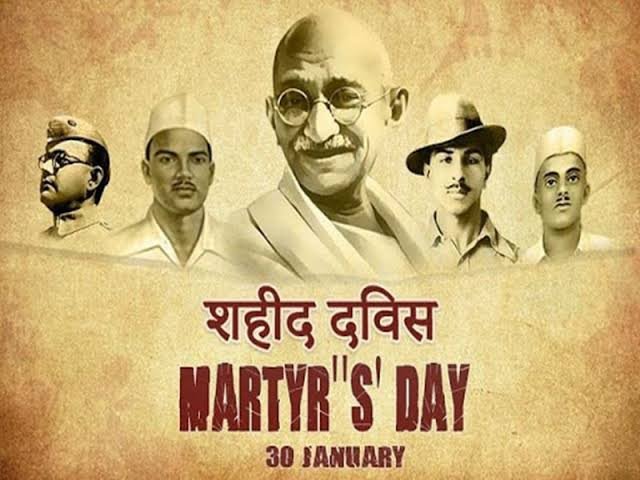REMEMBEREING MAHATMA GANDHI: A TRUE IDEAL
Shaheed Diwas: A Day of Reverence and Reflection:-
Each year, as the 30th of January approaches, India remembers the hallowed day known as Shaheed Diwas or Martyrs' Day, commemorating the sacrifices of those who gave their lives for our nation's freedom. On this day in 1948, the world lost one of its greatest souls—Mahatma Gandhi, the father of our nation. His life and legacy serve as a beacon of hope, faith, and unwavering commitment to the principles of truth and non-violence.
Remembering Mahatma Gandhi
Mahatma Gandhi, affectionately known as Bapu, was more than just a leader; he was a spiritual guide who illuminated the path to freedom with his ideals. His philosophy of Ahimsa (non-violence) and Satyagraha (truth force) stirred the conscience of millions and inspired a mass movement that ultimately led to India's independence from British rule.
Ahimsa is not merely the absence of violence but the presence of love, compassion, and respect for all living beings. Gandhi's commitment to non-violence was not a strategy of convenience but a way of life, deeply rooted in his spiritual beliefs. He taught us that true strength lies not in physical might but in the power of the spirit.
Satyagraha was Gandhi's unique method of non-violent resistance. It was a tool for the oppressed to demand justice without resorting to aggression. Through civil disobedience, boycotts, and peaceful protests, Gandhi demonstrated that a resolute and collective stand on the side of truth could dismantle the foundations of oppression and tyranny.
Gandhi's Contributions to India's Freedom
Gandhi's contributions to India's freedom struggle are manifold and profound. He was the guiding force behind several pivotal movements, including:
The Non-Cooperation Movement (1920-1922): Urging Indians to withdraw their cooperation from the British government, this movement aimed to cripple the colonial administration through non-violent means.
The Salt March (1930): Also known as the Dandi March, this 240-mile journey was a protest against the British salt monopoly. It galvanized millions to join the cause and became a symbol of Indian self-reliance.
The Quit India Movement (1942): A call for immediate independence, this movement saw widespread civil disobedience and mobilized the nation to demand the British leave India.
The Spiritual Legacy of Gandhi
Gandhi's teachings transcend political boundaries and resonate with spiritual wisdom. He believed in the inherent goodness of humanity and the transformative power of self-purification and inner discipline. His life was a testament to the harmony between spiritual practice and social activism.
On Shaheed Diwas, as we remember the sacrifices of our martyrs, let us also reflect on the spiritual dimensions of Gandhi's message. Let us commit ourselves to the principles of Ahimsa and Satyagraha in our daily lives, recognizing that the journey towards truth and justice begins within.
In honoring Gandhi's memory, we are called to become instruments of peace and agents of change. His legacy challenges us to rise above hatred, division, and violence, and to embrace love, unity, and non-violence as the foundation of a just and harmonious society.


Comments
Post a Comment